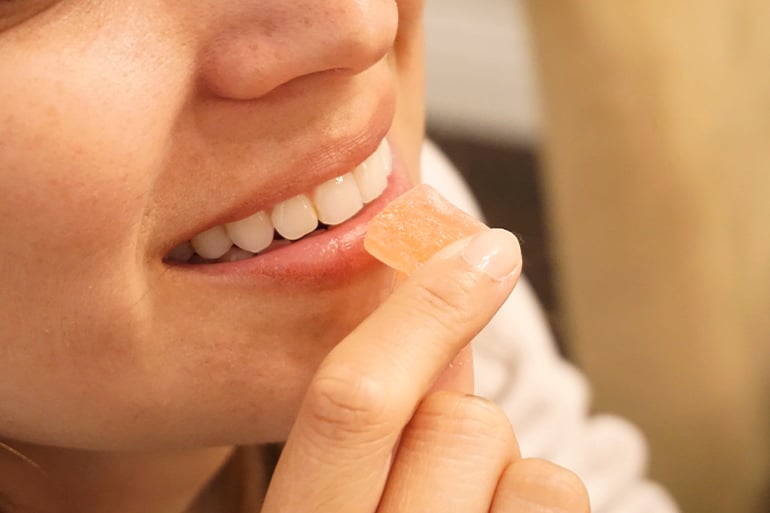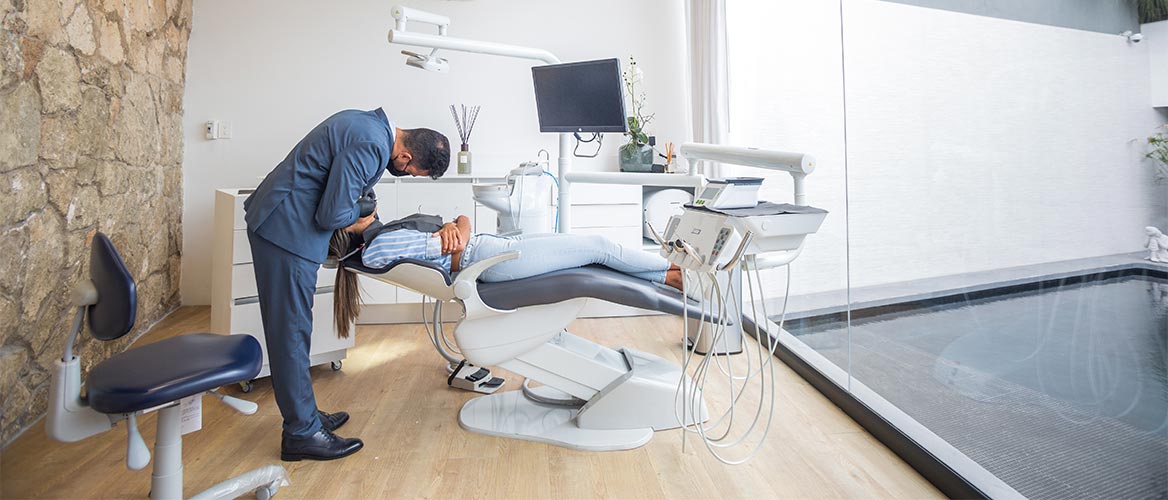July 27, 2023
March 16, 2023
Let’s face it, unexpected dental care can be painful and expensive. Putting off treating dental problems will only exacerbate the pain and costs. When faced with tooth loss, whether due to health problems, genetic issues, an accident, or other causes, it’s better to look into all potential dental solutions as soon as possible.
Missing teeth can not only cause a huge drop in confidence, but they can cause problems with eating and speech, and even affect your other teeth. If you’re looking to get the confidence boost you need, a bright, glimmering smile, and improved oral health, the two most common solutions are dentures are implants. This article will share everything you need to know about dentures vs implants; however, your dentist and oral specialist (orthodontist or endodontist) will advise you on the choice that’s right for your particular case.
What are dentures?
According to the NHS, dentures are removable, false teeth that fit snugly over the gums to replace missing teeth. You can get a complete set of dentures, which replaces all of your upper and/or lower teeth, or partial dentures to replace just a few missing teeth.
Process
For complete dentures, the denture device fits over your gums and jawbone. Immediate, temporary dentures can be fitted right after tooth removal, so that you’re not left without any teeth at all, but it usually takes up to 12 weeks to get your final dentures due to mouth swelling and healing.
Additionally, some realignment of your dentures may be necessary in the following months. The process for dentures involves taking impressions of your mouth, creating a sample prosthetic to test the fit and appearance, then final shape and color is adjusted for your final set of dentures.
Partial dentures are usually a metal plate with the missing teeth attached, or can clip onto your natural teeth via metal clasps. Both options can be easily removed. Materials and colors can also be adjusted for this type of denture.
Materials
Dentures can be made out of diverse materials such as plastic, metal, nylon, or hard resin. Acrylic is most commonly used due to its durability and low price point. Porcelain can also be used and creates a more natural looking end result, but it’s on the more expensive side and tends to be heavier than other materials. Plastic dentures are more flexible, but they may result in unwanted movement. Sometimes denture adhesive is used to properly secure dentures. Partial dentures use a combination of acrylic and metal materials, such as steel or chrome.
Costs
According to the American Dental Association, upper and lower dentures cost between $1,500-2,000 each for a total of $3-5k.
What are dental implants?
A dental implant is a permanent fixture that is surgically anchored to the jawbone and can be used to replace missing teeth. They’re made up of the implant itself, a metal post, and a custom crown that resembles a natural tooth.
Process
To get implants, you must go through a surgical procedure where the dental implant body is inserted in the jawbone in place of the tooth's root. The dental implant connector is then attached to the implant body by a screw and extends through gums into the mouth to support the attached artificial crown. Biocompatibility testing is performed to make sure the implant materials do not cause irritation or an allergic reaction.
Materials
According to the US Food and Drug Administration, most dental implant systems are made of titanium or zirconium oxide. Other materials such as gold alloys, cobalt-based alloys, titanium alloys, or ceramic materials are sometimes used. The safety profiles of these materials are well-known.
Costs
The cost of dental implants varies due to the number of implants required, location, and the materials used, but on average it can cost around $1,500-2,500 per tooth.
Pros and cons of dentures vs implants
Denture pros
- Having dentures fitted is generally a quicker, less intrusive process than implants.
- They tend to be much cheaper than dental implants due to a less complex process and cheaper materials.
- If necessary, dentures can support the structure of the mouth, cheeks, lips, and facial muscles.
- Ideal option for anyone with unhealthy or weak jaws.
Denture cons
- The materials used to make dentures are more fragile and could easily break or chip if dropped.
- Denture material wears down much quicker than implants, so they must be replaced every 5–8 years.
Dental implant pros
- Can offer better comfort and fit than dentures due to their permanent fixture. This can also improve speech and eating functions, too.
- Tend to have a more natural-looking appearance than dentures.
- Easier maintenance, as the devices do not need to be removed and cleaned each night. This also leads to fewer trips to the dentist compared to dentures.
- They can last for your entire lifetime with proper care.
Dental implant cons
- Significantly more expensive than dentures.
- The implanting devices must bond with the jawbone, so a person’s bones must be healthy before they can undergo implant surgery.
- Risks are associated with the implant procedure, such as damage to remaining teeth, tissue, nerves, jawbone, etc.

Caring for dentures and dental implants
- Oral care is especially important when you have dentures or implants: brush remaining teeth, gums, tongue. This will preserve the appearance and longevity of your false teeth.
- Your dentist will advise when you need to wear dentures and if you need to remove them when sleeping.
- Keep dentures in a safe spot, moist, and in warm water or an overnight cleaning solution. Brush them to remove plaque and food build-up.
- It may take a while to get used to eating with dentures or implants. Start with soft foods, cut into small pieces.
- If your dentures or implants become loose, click, slip, or feel uncomfortable, consult your dentist.
- Smoking will heavily affect your oral health and the appearance of dentures and implants.
Caser Expat Insurance dental coverage
Caser offers dental insurance in Spain that will not only help you protect your oral health, but can provide special offers for dentures or implants. In terms of dentures, Caser offers discounts on removable prosthetics with our dental insurance. In terms of implants, you’ll receive up to 50% off dental implants with the appearance of a natural tooth. By having dental coverage, you’ll save on unexpected, hidden, often high prices that can be associated with dental procedures and care. Learn more about Caser’s two dental insurance offerings, Essential Smile and Perfect Smile, by discovering the free guide below:
.png?width=344&height=67&name=logo_caser%20(2).png)









Let Us Know What You Thought about this Post.
Put your Comment Below.